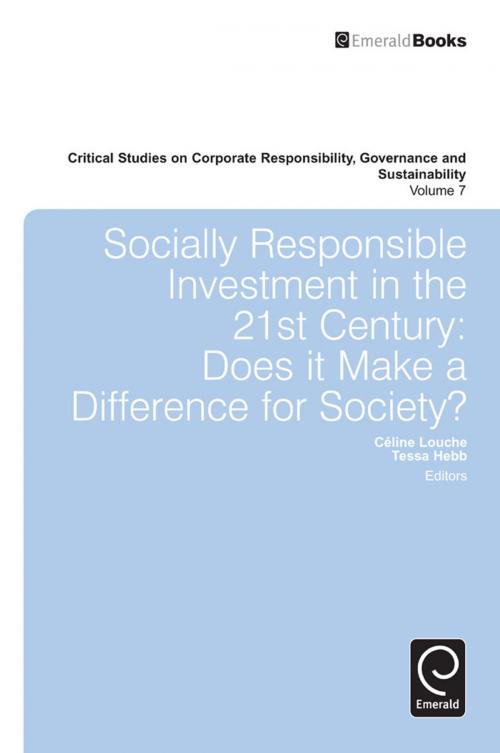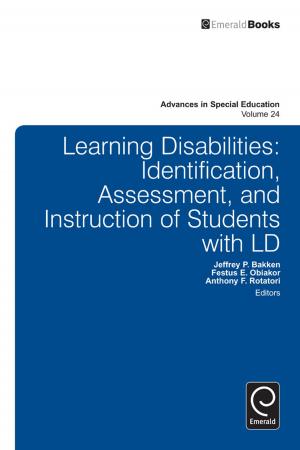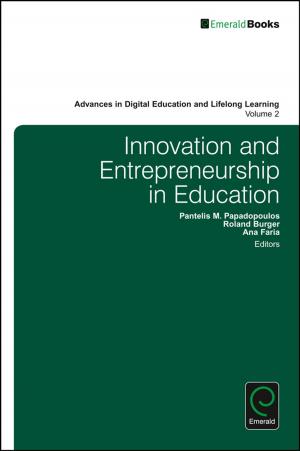Socially Responsible Investment in the 21st Century
Does it Make a Difference for Society?
Business & Finance, Business Reference, Business Ethics| Author: | Celine Louche, Tessa Hebb | ISBN: | 9781783504688 |
| Publisher: | Emerald Group Publishing Limited | Publication: | May 23, 2014 |
| Imprint: | Emerald Group Publishing Limited | Language: | English |
| Author: | Celine Louche, Tessa Hebb |
| ISBN: | 9781783504688 |
| Publisher: | Emerald Group Publishing Limited |
| Publication: | May 23, 2014 |
| Imprint: | Emerald Group Publishing Limited |
| Language: | English |
The history of modern Socially Responsible Investment began with the Apartheid crisis in South Africa in the 1970s. When asked if divestment played a role in ending South African Apartheid, Nelson Mandela answered "undoubtedly". But what about SRI in the 21st century, does it make a difference for society? The first part of this book explores the innovative approach of socially responsible investors in building engagement approaches, mobilizing networks, developing new products, and proposing alternative models showing the potential to create change. The second part interrogates the limits of SRI in making a difference. It questions the potential of SRI to create change but also proposes ways to increase societal impacts of SRI. The last section of the volume addresses the boarder issues of values and governance and shows how they are central in the SRI discussion. The book takes a critical but constructive stance on SRI with the objective of contributing to the capacity and ability of SRI to make a difference. Little research has been undertaken on the societal impacts of SRI. With this book we contribute to this debate, pushing the boundaries of SRI even further.
The history of modern Socially Responsible Investment began with the Apartheid crisis in South Africa in the 1970s. When asked if divestment played a role in ending South African Apartheid, Nelson Mandela answered "undoubtedly". But what about SRI in the 21st century, does it make a difference for society? The first part of this book explores the innovative approach of socially responsible investors in building engagement approaches, mobilizing networks, developing new products, and proposing alternative models showing the potential to create change. The second part interrogates the limits of SRI in making a difference. It questions the potential of SRI to create change but also proposes ways to increase societal impacts of SRI. The last section of the volume addresses the boarder issues of values and governance and shows how they are central in the SRI discussion. The book takes a critical but constructive stance on SRI with the objective of contributing to the capacity and ability of SRI to make a difference. Little research has been undertaken on the societal impacts of SRI. With this book we contribute to this debate, pushing the boundaries of SRI even further.















